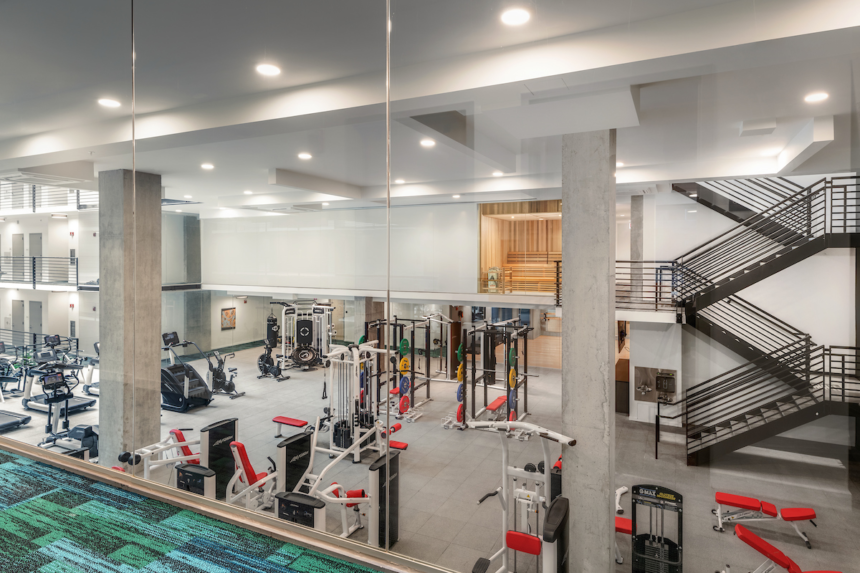Recent Posts
OPTIMA LAKEVIEW

Photo: Fitness Center at Optima Lakeview®
At Optima®, where we are passionate about fostering vibrant communities and promoting holistic wellness, we are consistently inspired by the growing movement toward healthier, longer lives. Longevity isn’t just about adding more years to our life; it’s about ensuring that those extra years are vibrant, fulfilling, and filled with well-being. Thanks to advancements in science, healthcare, and lifestyle awareness, people are living longer than ever before, and they are doing so with a higher quality of life. Below, we explore some of the most exciting trends in longevity that are shaping the way we think about aging and how we can live better, longer lives.
Personalized Healthcare
One of the most significant trends in longevity is the rise of personalized healthcare. As we gain a deeper understanding of genetics, lifestyle, and environmental factors, healthcare providers can now offer more individualized treatment and prevention plans. From genetic testing to DNA analysis, personalized healthcare can pinpoint an individual’s specific health risks and create tailored strategies to prevent illness and promote optimal well-being.
This approach also applies to nutrition, where personalized diet plans are based on a person’s genetic makeup, metabolism, and lifestyle. Personalized fitness routines are also on the rise, allowing individuals to engage in exercises that are most suited to their bodies and health goals. This tailored approach to healthcare not only increases the chances of longevity but also improves the quality of life for those adopting it.
Mindfulness and Mental Wellness
As we learn more about the mind-body connection, it’s becoming increasingly clear that mental health plays a crucial role in physical health and longevity. Mindfulness practices such as meditation, yoga, and breathwork are gaining popularity as tools to reduce stress, anxiety, and depression—conditions that have been linked to premature aging and numerous health issues.
The practice of mindfulness encourages individuals to stay present, reducing the negative impact of chronic stress, which is known to shorten telomeres (the protective caps on our DNA) and accelerate the aging process. By incorporating regular mindfulness practices into their lives, many people are finding that they can maintain both mental clarity and emotional well-being well into their later years.
The Role of Exercise and Strength Training
Exercise has long been recognized as a key component of health and longevity, but today’s trends focus on more than just cardio workouts. Strength training, in particular, is gaining attention as a powerful tool for maintaining muscle mass, bone density, and overall functionality as we age. It helps prevent sarcopenia (the age-related loss of muscle mass), supports metabolism, and can even improve cognitive function.
High-intensity interval training (HIIT) and functional fitness workouts are also growing in popularity for their ability to improve cardiovascular health, mobility, and endurance—all critical factors in living a longer, healthier life. The benefits of regular exercise extend far beyond the physical, promoting improved mood, better sleep, and increased resilience to the challenges of aging.
Intermittent Fasting and Caloric Restriction
Another trend gaining traction in longevity research is intermittent fasting and caloric restriction. Studies have shown that reducing caloric intake without malnutrition can increase lifespan and improve overall health. Intermittent fasting, which involves alternating periods of eating and fasting, has been shown to improve metabolism, reduce inflammation, and promote cellular repair processes such as autophagy, where damaged cells are broken down and regenerated.
While intermittent fasting may not be suitable for everyone, those who adopt this lifestyle often report enhanced energy, better focus, and improved metabolic health, all of which contribute to increased longevity.
Focus on Social Connections
Loneliness and social isolation have been linked to poor health outcomes and a shorter lifespan. As more people understand the importance of social connections to longevity, communities are increasingly prioritizing opportunities for social engagement, including group activities, volunteer work, and even communal living arrangements for older adults.
Social well-being, one of the pillars of wellness at Optima®, is essential to long-term health. Studies have shown that individuals with strong social ties tend to live longer and experience lower rates of cognitive decline. By encouraging residents to engage in community events, participate in book clubs, and foster meaningful relationships with their neighbors, we aim to create environments where people feel connected, supported, and engaged.
Longevity Science and Anti-Aging Research
Scientific advancements in the field of aging are moving at a rapid pace. From anti-aging drugs to stem cell therapies, researchers are working tirelessly to extend not only the human lifespan but also the “healthspan”—the years of life spent free from chronic illness and physical decline. While many of these developments are still in their early stages, they offer promising insights into how we can delay the onset of age-related diseases and live healthier lives for longer.
Living a Longer, Fuller Life
At Optima®, we believe in creating communities where health, wellness, and social connections are at the heart of daily life. With the latest trends in longevity, we’re seeing exciting opportunities for our residents to embrace healthier lifestyles, from personalized fitness programs to mindfulness practices and engaging community events. By fostering environments that support physical and mental well-being, we are helping our residents live longer, more fulfilling lives.
As science and society continue to redefine what it means to age, one thing is clear: longevity is about more than just adding years to life—it’s about adding life to those years.

